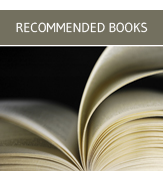The Writing Life: A Reading List
We like to boast about the distinguished array of influential, acclaimed, and popular authors that feature in the Society Library’s history (Cather, Melville, Hazzard, Wodehouse, many more). That tradition thrives today, as writers continue to turn to the Society Library for quiet, well-appointed places to work and to our open stacks for research and inspiration (“Books are made out of books,” as Cormac McCarthy once said). We also offer a lively series of programs under the banner of “The Writing Life,” offering advice, critique, guidance, moral support, instruction, prompts, workshops, live readings, and more for aspiring writers.
Our rich stacks contain many books that examine the writing life and you will find some highlights below. These first-person accounts are neither traditional memoirs nor how-to guides, but are more concerned with inspiration and process, totems and ritual, self-doubt and rejection, isolation and community, sacrifice, and more. Writing is a solitary calling, difficult to say the least. Perhaps these accounts will offer solace and inspiration. This list is by no means definitive. If you have a favorite that you don't see here, let us know about it by emailing acquisitions@nysoclib.org.
For more first-person musings on the writing life, the Library has extensive holdings of writer interviews: The Paris Review’s Writers at Work series; University Press of Mississippi’s Literary Conversation series; and many more. If you prefer cradle-to-grave biographies or traditional memoirs, Stack 7 holds over 30,000 biographies including many on authors, obscure and well-known. If you are interested in how-to guides and writerly advice, browse the 808 call number range on stack 9.
The Writing Life: Writers on How They Think and Work: A Collection from The Washington Post Book World | edited by Marie Arana (2003)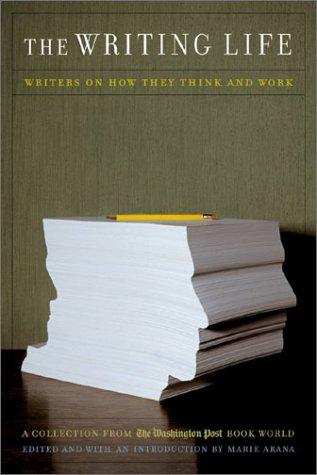
Culled from ten years of the Washington Post column of the same name, this anthology features more than fifty writers and is loosely organized around such themes as "On Becoming a Writer," "Raw Material," and "Hunkering Down." Featured writers include Julian Barnes, Donald Westlake, Jane Smiley, Francine du Plessix Gray, Joyce Carol Oates, Alice McDermott, John Edgar Wideman, Anita Desai, David Halberstam, Wendy Wasserstein, Donald Westlake, and Julia Alvarez.
The Writing Life: National Book Award Authors (prologue by Shirley Hazzard; foreword by Raymond Lum) (1995)
This collection of essays and interviews with nineteen National Book Award winners features John Updike, Gail Godwin, David McCullough, E. Annie Proulx, Ron Chernow, and many more. Library Journal writes that “This collection will inspire all interested in writers, writing, and the creative process.”
The Writing Life | Annie Dillard (1989)
In this collection of short essays, Dillard (Pilgrim at Tinker Creek, American Childhood) lays out “with clear eye and wry wit how, where and why she writes (Publisher’s Weekly).” A Kirkus reviewer was less than charmed by Dillard’s “overwrought imagery and overheated views” but concludes that “her undeniable authority when discussing the miseries and joys that attend the world of pen and ink, makes this worth the read.” The reviewer also notes the strengths of passages on the physicality of the writer’s life— cluttered desks, her pine study (a prefab toolshed), the time her electric typewriter exploded, mounds of paper, and "refried coffee”—as well as the descriptions of her daily walks and discussions of other writers’ schedules.
On Writing and Failure: Or, on the Peculiar Perseverance Required to Endure the Life of a Writer | Stephen Marche (2023)
This brand new book is described as "Less a guide to writing and more a guide to what you need to continue existing as a writer." Marche explores the defining role played by rejection in literary endeavors and contemplates failure as the essence of the writer's life. Along with his own history of rejection, Marche offers stories from the history of writerly failure, from Ovid's exile and Dostoevsky's mock execution to James Baldwin's advice just to endure, where living with the struggle and the pointlessness of writing is the point. Stephen Marche is a novelist and essayist and the author of six books, as well as a contributor to the New Yorker, the New York Times, The Atlantic, Esquire, and many others.
Daily Rituals: How Artists Work | Mason Currey (2013)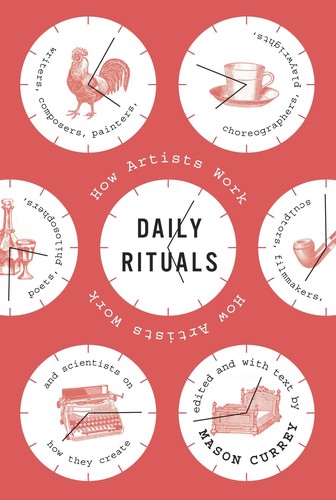
When writing this book, Mason Currey sought to reveal how “the greatest minds of the past four hundred years…made the time each day to do their best work, how they organized their schedules in order to be creative and productive. By writing about the admittedly mundane details of my subjects' daily lives—when they slept and ate and worked and worried—I hoped to provide a novel angle on their personalities and careers.” The crucial question, “How do you do meaningful creative work while also earning a living?” is also explored. Whenever possible, Currey lets the subjects speak for themselves in quotes from letters, diaries, and interviews. Among the 200 or so subjects, there are many writers including W.H. Auden, Stephen King, Toni Morrison, Ann Beattie, Marilynne Robinson, Gertrude Stein, William H. Gass, Alice Munro, Kafka, Proust, Trollope, Twain, and many more. Some of their rituals are eccentric to say the least, but the results speak for themselves.
How I Write: The Secret Lives of Authors | edited by Dan Crowe; with Philip Oltermann (2007)
The 60-plus original short essays in this heavily-illustrated large format book “zero in on the place where writing gets done, the process by which writing resumes, or the thing—be it stone creature, live animal, or work of art—that helps channel the muse. In doing so, the essays allow readers a glimpse, through both words and images, of the writers’ intimate worlds” (Library Journal). Contributors include Jonathan Franzen, Jeffrey Eugenides, Joyce Carol Oates, Nicole Krauss, Nicholson Baker, Anthony Bourdain, Geoff Dyer, and more.
A Writer Prepares | Lawrence Block (2021)
Lawrence Block has been writing crime, mystery, and suspense fiction for more than half a century, publishing over 200 books, and winning every major award that a crime writer can claim. In this memoir, Block looks at his beginnings as a writer in the 1950s, when he churned out erotica under pseudonyms in order to earn a living and eventually found his voice. Block writes that it is “likely the book will get a favorable reception from persons who are somewhere in the process of finding themselves as writers.”
Pulp Writer: Twenty Years in the American Grub Street | Paul S. Powers (published2007; written c. 1943) 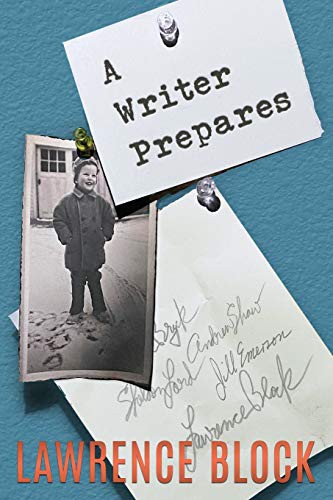
This little-known book provides a unique in-depth look at the life of a pulp writer in early to mid-20th-century America. Paul S. Powers was a prolific and very successful writer for publishers of western stories from the Great Depression into the 1940s. This autobiographical manuscript (likely written in 1943) was discovered among his papers by his granddaughter, Laurie (who provides an excellent introduction), and was published for the first time in 2007. In Pulp Writer, Powers writes that he published "more millions of words than I care at the moment to tote up" and in this book "It's the author's intention to tell, to the best of his ability, how it was done." The text, he adds is "one of personal experience, and not in any sense a textbook on the art of ficiton writing." Booklist: "This lively, outspoken, hugely entertaining chronicle tracks Powers' evolution as a professional writer: from newspaper and magazine joke writer, to rejection-slip collector, and—finally!—to published author. Although the memoir was written more than half a century ago, much of what Powers says about getting started in the publishing game still holds...[it] deserves a much wider readership than it may get as a university press publication; it should be recommend enthusiastically to writers of all stripes and to anyone interested in the history of pulp publishing."
Resilient Writer: Tales of Rejection and Triumph by 23 Top Authors | Catherine Wald (2007)
Conversations with twenty successful authors about conquering the demon of rejection, recounting their personal struggles, strategies for coping, and inspiring stories of ultimate triumph. Authors include Chris Bohjalian, Bret Easton Ellis, Joy Harjo, Kathryn Harrison, Amy Tan, Elinor Lipman, Esmeralda Santiago, Edmund White, and more.
The Writing Life: Authors Speak | The British Library (recording on compact disc)
Still have a compact disc player? Produced by the British Library, this two-disc set seeks to answer the question "What is the writer's life really like?" The goal was to create a collection of oral histories so that listeners today and in the future could hear, unmediated, the voices of British writers telling us how it really was. (The recordings are archived in the British Library.) Authors include Hilary Mantel, P.D James, Ian McEwan, Beryl Bainbridge, Ian Rankin, Penelope Lively, Michael Holroyd, and more.
Soul At the White Heat: Inspiration, Obsession, and the Writing Life | Joyce Carol Oates (2016)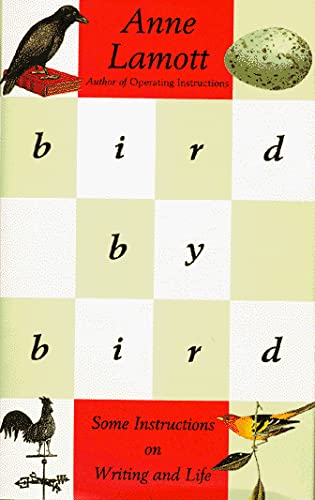
The 33 essays in this collection are culled from the New York Review of Books and other publications. The book's first section, "The Writing Life," contains a lecture and a trio of essays united by the question “why do I write?” Inspiration and obsession are themes throughout many of the pieces here, and Oates’ famously prolific output seems to testify to her authority on the subject. We have over 100 of her books in our stacks.
The Company of Writers: Fiction Workshops and Thoughts on the Writing Life | Hilma Wolitzer (2001)
Acclaimed, popular novelist and writing teacher Hilma Wolitzer offers insight into how writers can form effective support networks and find their own writing process and voice. The book is suitable for the workshop veteran or a writing-group novice. The second half offers more traditional “how to” writing advice.
A Dangerous Profession: A Book About the Writing Life | Frederick Busch (1998)
Throughout his 27-novel career Busch was known as a “writer’s writer.” In this collection, “he forges a powerful philosophy of literature over the course of 16 vibrant essays” (Booklist). In addition to examining his own writing life, Busch looks at the lives of Melville, Dickens, Reynolds Price, Graham Greene, and Leslie Epstein. A reviewer in Library Journal admired how “the essays emphasize the connection of literature to life and the moral direction literature provides…Busch's writing, full of energy and passion, provides a positive model for those who aspire to the writing life.”
Bird by Bird: Some Instructions on Writing and Life | Anne Lamott (1994)
Bird by Bird is now considered a classic. Library Journal: “Lamott presents much more than an instruction manual in this small text. Writing is by nature a personal and solitary trade, and Lamott offers thorough examples and anecdotes that explain how she copes with self-doubt, writer's block, professional jealousy, and the discipline necessary to turn thoughts into words on a page. Her work is an honest appraisal of what it takes to be a writer and why it matters so much.”
And a Dog Called Fig: Solitude, Connection, the Writing Life | Helen Humphreys (2022)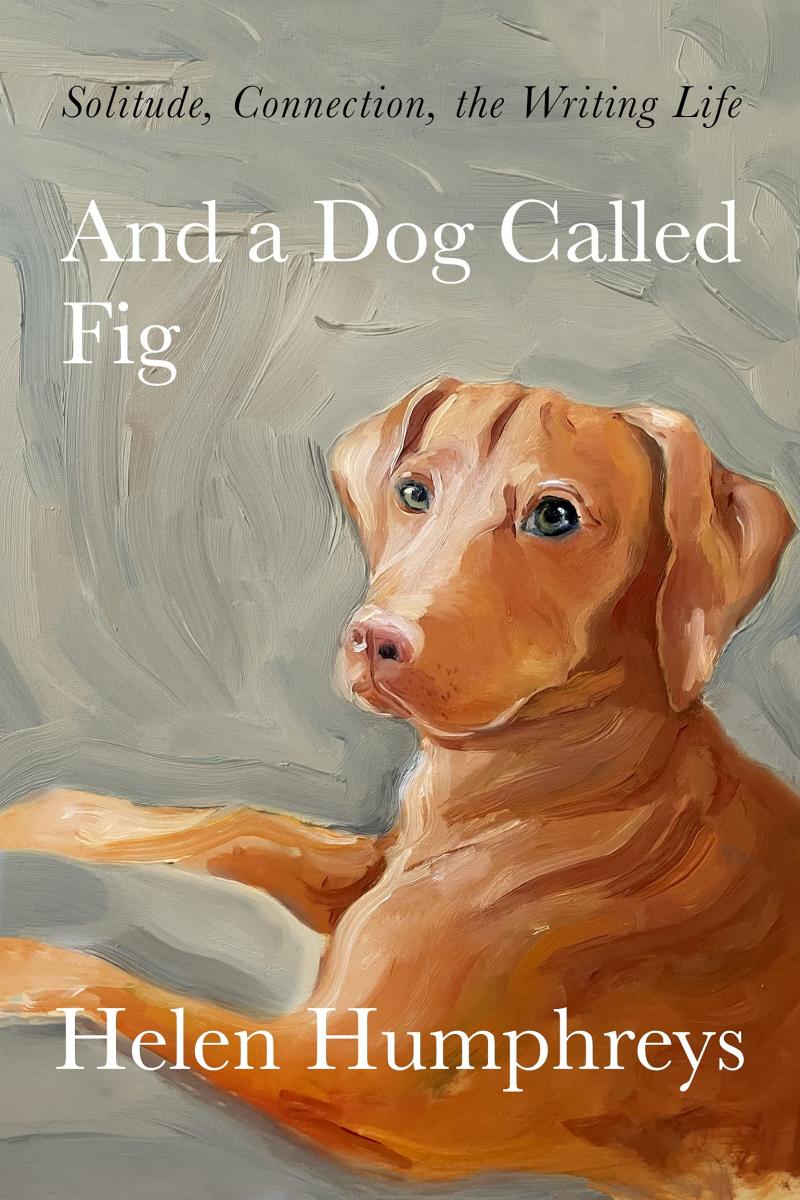
And a Dog Called Fig is a memoir of the writing life told through the dogs Humphreys has lived with and loved over a lifetime. Publisher’s Weekly: “In this tender tribute, novelist and essayist Humphreys (The Evening Chorus) explores the parallels between the creative journey and communing with one’s canine,” noting that “the process of writing is akin to that of caring for a puppy—from finding structure in daily strolls, to discovering the perfect setting, pacing, and ending.” Humphreys’ personal observations are mixed with stories of famous writers who felt a similar kinship with their dogs, including Anton Chekov, Alice Walker, Virginia Woolf, Gertrude Stein, and Thomas Hardy.
Compared to What?: On Writing and the Writer's Life | Thomas Farber (1988)
Kirkus: “The subject here is writing, but this is not a manual or guidebook. Some of it is autobiography: Farber calls himself ""the writer"" here, and more than half the entries recapture in third person his struggle to establish his identity and craft. Most of the rest consists of anecdotes about or quotes from famous writers… A little doily of a book, pieces of verbal lacery stitched together into a balanced, lovely, delicately patterned whole.” Farber is the author of dozens of books, and is currently on the faculty at UC-Berkeley.
First We Read, Then We Write: Emerson on the Creative Process | Robert D. Richardson (2009)
Emerson's thoughts on writing are developed in well-known essays such as "The Poet" and "The American Scholar." In this book, Richardson also draws heavily on Emerson's private journals to illuminate his views on the relationship between writing and reading, structuring his study around Emerson's components of the creative process such as observing nature, reading, and keeping a journal. The reviewer in Choice notes that "in a sizable portion, Emerson speaks for himself through his journal writings...and Richardson's authoritative, succinct commentary serves as a framework....This book will interest writers of fiction and creative nonfiction as well as scholars and students of Emerson." Richardson is the author of the acclaimed biography Emerson: The Mind on Fire, as well as books on Thoreau and William James.
—Steven McGuirl, Head of Acquisitions
